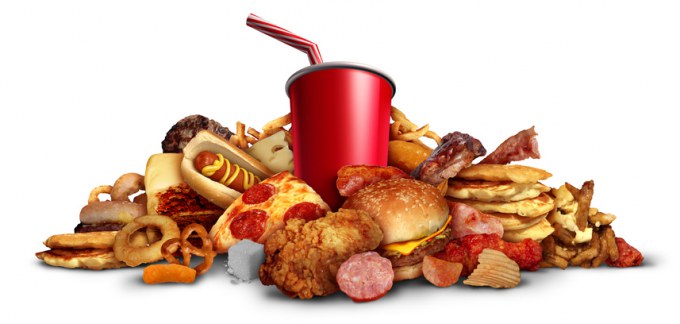Junk food isn't just bad for your body — it's also bad for your brain
Junk food isn't just bad for your body — it's also bad for your brain

How eating ultra-processed foods can be addictive
Having a diet high in ultra-processed foods has been linked to several health conditions, such as obesity, Type 2 diabetes, cancer, and cardiovascular disease. New research, however, suggests that these foods can also impact the way we feel, learn, and remember.
In a 2023 study published in Cell Metabolism, researchers found that participants who ate a high-fat, high-sugar snack for eight weeks had much higher brain activity in areas that create dopamine when they saw visual cues indicating they would receive this kind of snack. Dopamine is a neurotransmitter that influences motivation, learning and expecting, and experiencing rewards.
"When they see the sign of their favorite fast food place or the packaging of their favorite snack, they have more brain activity and are potentially feeling more craving activity that could make them more likely to consume that food," said Alexandra DiFeliceantonio, associate director of the Center for Health Behaviors Research at Virginia Tech, and one of the study's authors.
Ashley Gearhardt, a professor of psychology at the University of Michigan and a co-creator of a measure of food addiction, said the effects of eating ultra-processed foods are similar to what people experience when using nicotine, alcohol, and other addictive drugs.
"People intensely crave ultra-processed foods and consume them compulsively and find they can't stop eating them," she said.
The researchers also found that eating high-fat, high-sugar snacks affected how participants learned. During a basic learning task, participants were required to push a button associated with a picture when they heard certain tones. When participants who ate these ultra-processed snacks did not get a picture they expected, they had more activity in the parts of their brains involved in evaluating situations.
This high-sugar, high-fat diet "is changing something really basic about how we learn," DiFeliceantonio said.
Similarly, another study from Australia found that eating a breakfast high in saturated fats and added sugar was associated with reduced performance on some learning and memory tests. In comparison, people who ate healthier breakfasts did not see declines in their performance.
How ultra-processed foods impact mental health
Ultra-processed foods can also impact mental health, with several studies finding that diets high in these foods are associated with an increased risk of depression. A large review of research recently published in BMJ found that diets high in ultra-processed foods are linked to an increased risk of depression, anxiety, and sleep problems.
Gearhardt and colleagues have also proposed a new mental health disorder called "ultra-processed food use disorder" or "highly-processed food use disorder." Symptoms of the proposed disorder include intense cravings, difficulty reducing consumption, and withdrawal when trying to reduce intake.
According to Felice Jacka, director of the Food & Mood Centre at Deakin University in Australia, diet likely affects mental health through the gut microbiome, which refers to microbes living in the digestive tract. The gut microbiome affects immune function, the stress response systems, and the production of neurotransmitters like serotonin — all of which can influence your mental health.
Eating a diet high in ultra-processed foods can also lead to your microbiome being less diverse and having fewer types of beneficial bacteria, said Arpana Gupta, co-director of the Goodman-Luskin Microbiome Center at the University of California, Los Angeles.
Separately, DiFeliceantonio said changes to the brain's reward system due to high-fat, high-sugar foods could also lead to mental health problems. "The fact that your diet is altering that reward system pretty profoundly actually means that everything in your life is being affected," she said. (Petersen, Wall Street Journal, 3/11; Pandey, Axios, 3/13; Thanarajah et al., Cell Metabolism, 4/4/23)








